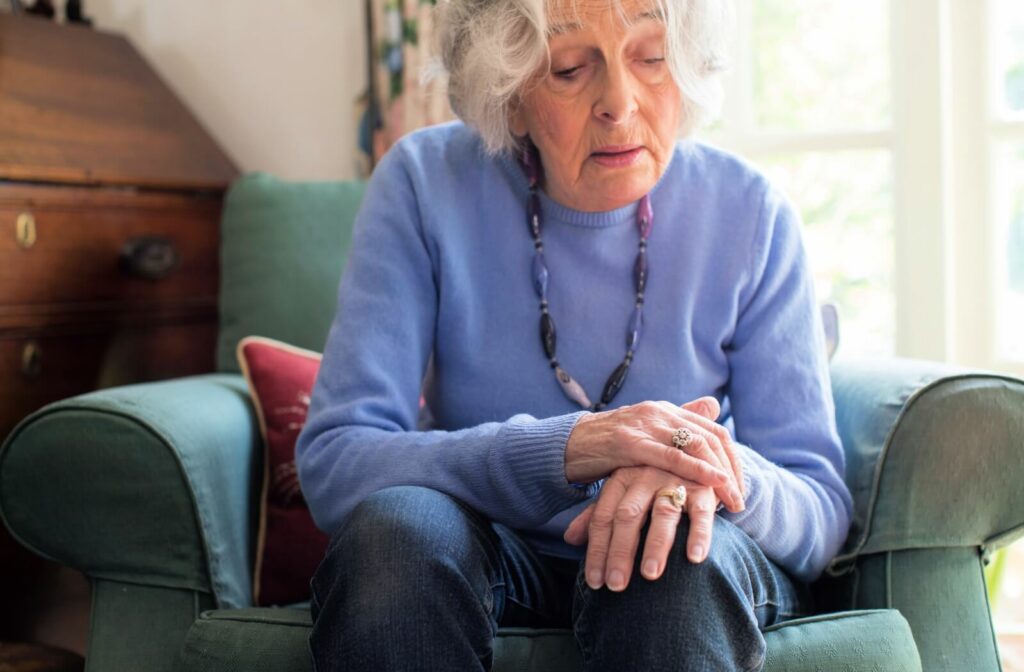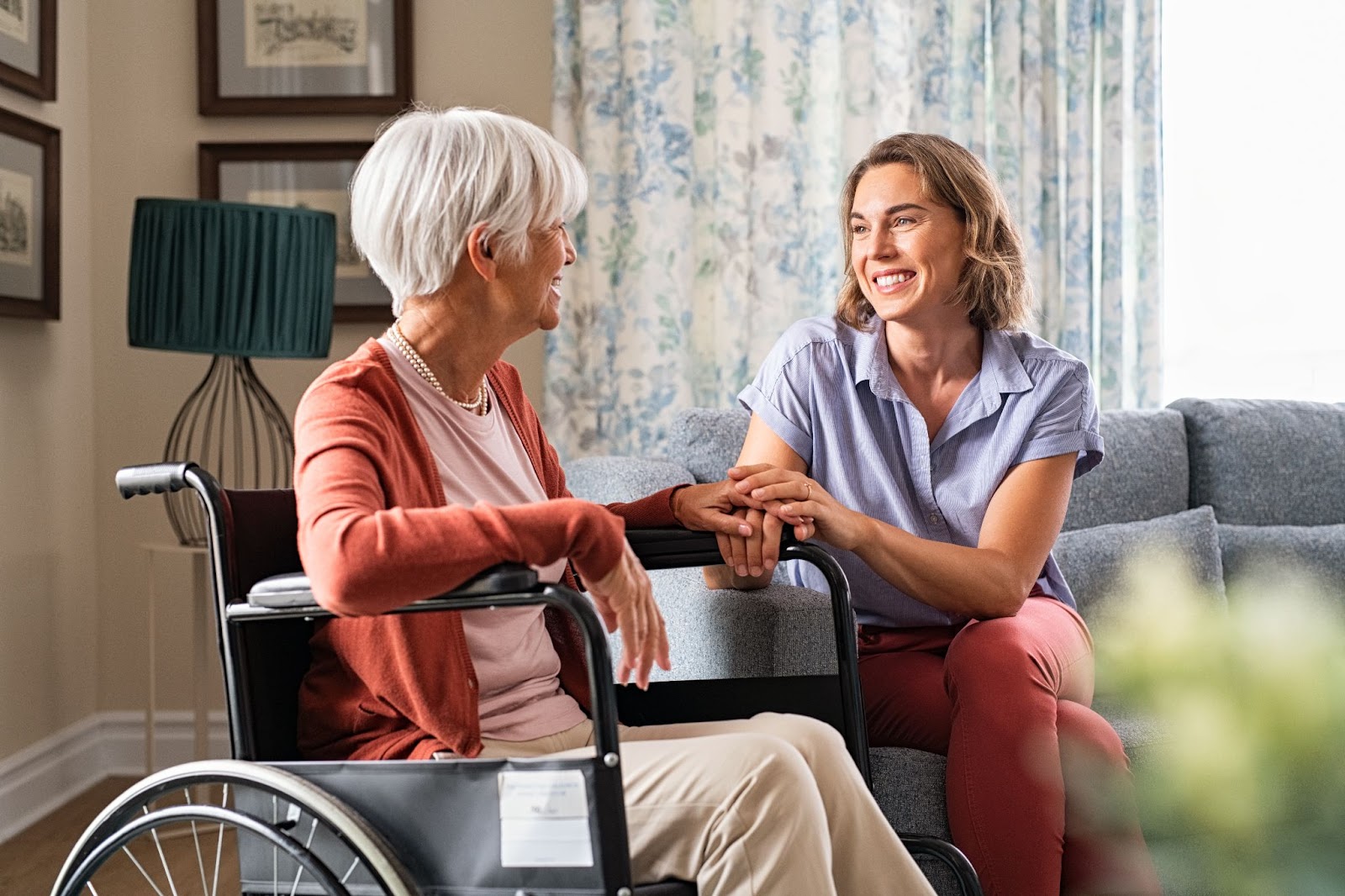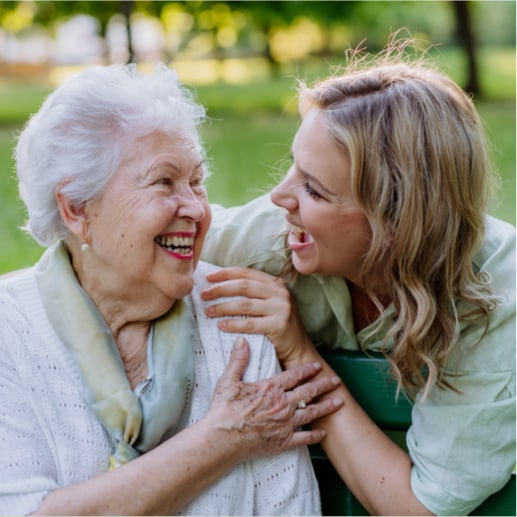Parkinson’s disease can be a complicated condition, affecting people in many different ways. This complex condition can pose unique challenges that can be difficult to treat without a team of experienced caregivers. So how does Parkinson’s disease progress?
Parkinson’s steadily moves through 5 distinct stages. At first, a person may not experience symptoms, but will slowly develop tremors and shakes. As the condition progresses, these symptoms become worse, and once the condition reaches stage 5, independence can be extremely difficult.
In the later stages, professional care is crucial to maintain your loved one’s quality of life.
What Is Parkinson’s?
Parkinson’s disease is a progressive neurodegenerative disorder that primarily affects a person’s movement. This condition affects the cells all throughout the brain, but primarily affects the center of the brain responsible for producing dopamine.
Dopamine is a neurotransmitter that’s crucial for coordinating swift, smooth, and balanced muscle movements. Think of it like it’s the traffic controller of your body—it helps you navigate the world smoothly and effectively.
With Parkinson’s disease, dopamine levels steadily decrease. It’s still unknown as to what causes the onset of this condition, though it’s believed that genetics and environmental factors play a role. Either way, Parkinson’s soon makes it much more difficult for the brain to send signals to coordinate your muscle movements, and eventually leads to:
- Tremors
- Stiffness
- Slow movements
- Balance problems
- Difficulty with coordination
As the disease progresses, these symptoms can become more pronounced, making everyday tasks more challenging. There are 5 key stages to Parkinson’s disease—1 through 5—each with its own key symptoms.
Stage 1 Parkinson’s
In stage 1 of Parkinson’s disease, the symptoms are often mild—and it’s entirely possible that they go unnoticed. Usually, the symptoms (if any) will only affect one side of the body.
As the condition begins to settle in, a person may experience:
- Minor tremors or shaking
- Slight changes in posture and facial expressions
- Mild difficulty with walking or standing
- Subtle changes in speech or handwriting
- Slight stiffness or slower movements
These symptoms are easy to overlook, and normally, a person with stage 1 Parkinson’s disease can continue their life as normal. However, if you’re worried about a loved one, it’s crucial to keep an eye out for worsening symptoms. With neurodegenerative disorders like Parkinson’s disease, you can’t be too careful, and early intervention can make a big difference.
Stage 2 Parkinson’s
As Parkinson’s disease progresses further to stage 2, the symptoms become a little more noticeable. At this point, symptoms are still mild but spread to the other side of the body.
This can quickly lead to:
- Noticeable tremors or shaking on both sides of the body
- Increased stiffness in the muscles
- Slower body movements becoming more apparent
- Greater difficulty with walking and maintaining balance
- More pronounced changes in posture and facial expressions
- Clearer issues with daily tasks like dressing, eating, and writing
At this stage, people with Parkinson’s can still live independently, but everyday routines might start to require a bit more effort and time. Support and understanding from family and friends can make a world of difference—as can professional care.
Stage 3 Parkinson’s
When symptoms reach stage 3, they become more noticeable. At this point, a person’s condition will start to affect their everyday life. A person with stage 3 Parkinson’s disease will likely experience:
- Loss of balance and a higher risk of falls
- Significant slowing of movements
- Noticeable difficulty with fine motor skills, like buttoning a shirt or typing
- Increased trouble with day-to-day activities such as dressing, eating, and bathing
- More pronounced speech and swallowing difficulties
- Greater difficulty showing facial expressions
At this point, a strong support system is necessary to help your loved one maintain their quality of life. While a person with stage 3 Parkinson’s disease can remain somewhat independent, they’ll likely need help with many of their daily tasks.
Once Parkinson’s disease reaches stage 3, a move to a senior living community is often ideal—this way, your loved one can be surrounded by trained caregivers who have experience supporting people living with conditions like Parkinson’s.
Stage 4 Parkinson’s
Stage 4 is where things start to get a bit more challenging—for both the person living with Parkinson’s and their team of caregivers. With stage 4, symptoms start to have a significant effect on your loved one’s quality of life. At this point, a person may experience:
- Severe limitations in their mobility
- Difficulty standing on their own without assistance
- Increased severity of tremors and stiffness
- Greater difficulty with everyday tasks
- More pronounced speech difficulties
At this point, living independently becomes extremely difficult, and a move to senior living is often the best choice. This can help your loved one maintain a certain degree of independence and dignity while making sure their safety and quality of life will be prioritized.

Stage 5 Parkinson’s
Stage 5 of Parkinson’s is the most advanced stage of the disease. At this point, symptoms are very serious and will affect almost all aspects of your loved one’s life. With stage 5 Parkinson’s disease, a person will experience:
- Severe difficulty with motor skills
- Inability to stand or walk without significant assistance
- A high risk of falls leading to injuries
- Complete dependence on caregivers for daily activities
- Significant cognitive changes
Stage 5 can be tough, but it’s important to remember the power of community. Surrounding your loved one with a solid team of compassionate caregivers, friends, and family can make a huge difference. At this stage, professional care is crucial to maintaining your loved one’s health and quality of life.
How to Help Someone with Parkinson’s
At Luna Senior Living, we understand the unique challenges that come with Parkinson’s disease. Our compassionate team is dedicated to providing tailored care to help your loved one through the unique difficulties Parkinson’s can pose. Schedule a tour with our community today to see for yourself how we can support you and your loved one on this journey.




















